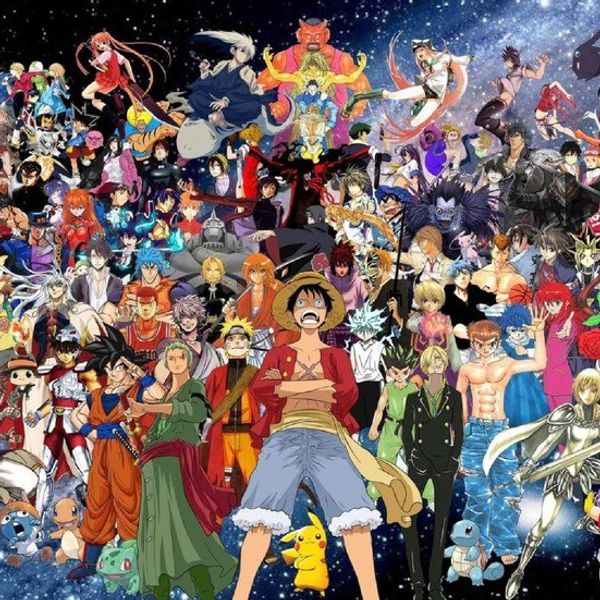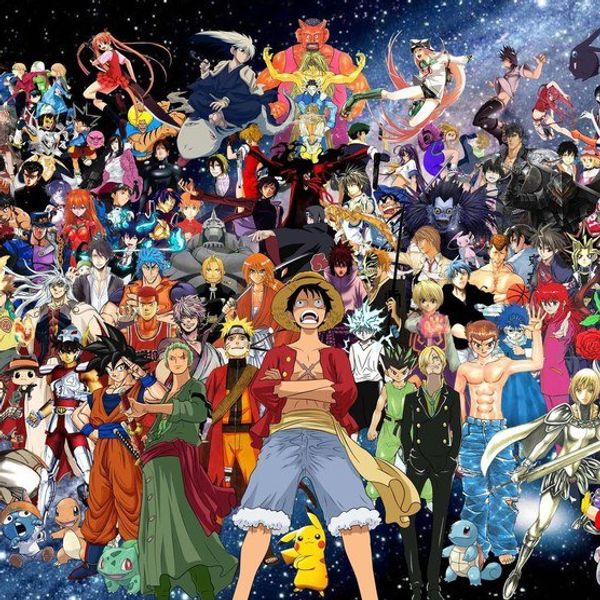Hello everyone, here is your Gamerman Weekly. This week I want to discuss a very interesting issue in the anime world, what I call the “Super-Popular Anime”. Now, when I was a kid, my first anime was technically the Pokemon show. I started watching bits here and there, always enthralled, and then I was obsessed with watching every single show made in order. Now I watch most any kind of anime that I hear is good, One Piece, Your Lie in April, Gargantua on the Verderous Planet, and the not so good ones that I can’t even remember. But my anime watching was only limited to Pokemon for a very long time, until I came across an anime, highly recommended by all corners of the internet at the time, called Attack on Titan (AOT).
In my opinion, AOT, is actually a good anime. Many of my friends call it over rated and unimaginative and repetitive. While I grant that all are true, the show was a run-away success regardless of those qualities. So even though by anime standards, the show wasn’t spectacularly amazing, so my question is, why did so many people like it? I have a theory.
The main focus of the show is about a boy called Eren Yaeger living in a reality where humanity is on the brink of extinction, surviving in a massive walled off three-tiered city. This kind of survival is thanks to an extremely mysterious race of human-like giants called Titans that are driven by supposed blood-lust to only consume humans. Eren’s life is destroyed by Titans and he vows in a rage fueled war-path declaration to wipe out the Titans. This brings me to the meat of my theory.
I believe run away successes like AOT are driven by a power lust for anime watchers, new and old. I don’t mean that every anime lover is taken by the desire for world domination, but they do enjoy watching scenarios where a protagonist can theoretically do that in their universe, based on sheer strength of will power and/or physical capabilities.
For me personally, witnessing moments where a character I’ve invested time and empathetic emotion into comes out of their carnal shell and shows their world an awesome power of which most had never seen, makes me giddy. It’s like a reward system, for having paid attention to the creators work for so long. Some may call it fan service, I say it’s fan appreciation. But some anime’s don’t follow this path.
Anime’s like Clannad Story and Toradora can both be classified as realistic fiction and romantic comedy. These shows, in their own right, are fantastic, but they haven’t reached the levels of stardom that AOT has. I believe it’s because neither show has characters that have awesome displays of power, or any plot points like that. Now, this doesn’t mean that every anime that has been amazingly popular contained these kinds of characteristics. One example is Hiyao Miyazaki’s film The Wind Rises, which I recommend as a good watch for those new to anime.
I wonder if all the anime that go down in history as amazingly good, or perceived as such, will be focused around characters or plot points of spectacular displays and uses of power. A recent example for another “Super-Popular Anime” is One Punch Man, which literally is about a man that has the power to destroy anything in his path with one punch. I myself have enjoyed it immensely, and it brings about very interesting and intriguing questions about what is means to be a good hero, another anime I highly recommend.
So, to recap, I’m new to anime good and bad, but in my travels through the magical and majestic realm, I have noticed the “Super-Popular Anime” anomaly. My theory is that these anime’s follow a system of power lust reward for the audience, by showing characters gaining/using massive displays of power. Not all popular anime’s use this formula, but in my opinion, most do. And this article in no way is meant to be critical of the practice, but merely an observation. I’m more than happy to see what anime creators have up their sleeves to continue exciting me with this formula. If the practice becomes different, maybe less power focused, I will be no less a fan of anime.
Thanks for reading.
--G




















